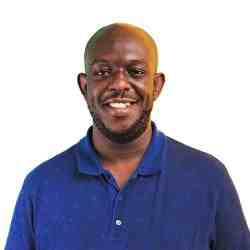Einführung
In a world where psychosocial stresses are a leading cause for disease globally, Inge Missmahl introduces a scalable system to sufficiently care for, empower and re-mobilize people who suffer. Through enabling new human resources, she facilitates greater individual well-being and accountability, as well as community resilience, working with both migratory and stationary populations.
Die neue Idee
While the WHO estimates psychosocial stresses will be the 2nd leading cause of disease globally within the next five years, established systems fail to respond to the growing challenge. Against the background of her work as psycho-analyst, Inge Missmahl realized that too many people around the world in (post) conflict situations or situations of acute stress have no access to effective relief that can support them to regain their inner strength and their inner compass. She also acknowledges that trying to spread or introduce existing (Western) approaches based on fast, pathology-based diagnosis and pharmacological treatment will not do the job. Instead, a culturally sensitive and easily scalable approach as a basis for individual action and community wellbeing prevents serious costs for national health systems.
Through her approach to finding, training and enabling psychosocial counselors with various cultural backgrounds and mother tongues, she builds a new and highly effective network of citizen empowerment. Following a clear set of guiding questions and sessions, her culturally sensitive counselors allow clients to shift their view from being a victim of circumstance to being an active shaper of their situation – with deep impact on acute symptoms, but also on underlying issues like gender violence and family conflicts.
50,000 treated mental health cases and successful national implementation in Afghanistan‘s national health care system have proven her model. This motivated Inge to not only strengthen the train-the-trainer component, but also to transfer the model to the digital sphere: With Ipso e-care, she follows her vision towards every human having access to psychosocial support when needed. Ipso e-care is designed to be beneficial for a far wider target group. Refugees, migrants, as well as expats or development aid workers can easily and anonymously access Ipso e-care and find professional support that reflects their cultural identity, understands their present situation and deals with acute psychosocial stresses so they can become active participants in and shapers of society. To ensure that ipso e-care can help as many people as possible while setting new qualitative standards in online psychosocial therapy, Inge wants to build new partnerships as part of a franchise system. Ipso e-care will have the combination of web-tool and trained coaches as integral components, but will also be adaptable to various cultural and institutional settings.
Das Problem
With psychosocial stresses being expected by the WHO to rank as the number 2 cause for diseases globally in the next five years, societies around the world are facing a major challenge in this field. Root causes for this development are complex. Increasing (refugee) migratory processes do their part in changing the cultural frameworks we live and operate in. This is especially true for people in post-war or conflict settings and for mobile populations of all sorts, but also applicable to stationary populations around the world.
If not resolved, cultural tensions leading to psychosocial stress immobilize people at just the time when they need to take action for themselves and their families to positively influence their future and their environments. People feel segregated and powerless, leading to lost confidence a feeling of being victimized and stuck. Disturbing downward spirals are a result, in which drug and alcohol abuse, domestic violence or chronic psychosomatic illnesses are often seen (Medecins sans Frontieres). There is also ample of evidence that individuals who faced potentially traumatizing situations end up being violent and engage in anti-social behavior, thus perpetuating the cycle of violence.
Existing – mostly Western, therapy-based – frameworks to deal with psychosocial stresses fail to achieve the broad impact needed. In situations of acute psychosocial stress, a low barrier, empowering psychosocial (instead of psycho-medical) approach holds a key to progress. Putting the individual and his or her individual capacity for problem-solving in the spotlight, such an approach supports self-help and strengthens the resources already present. Social capital can be built up and mobilized, positive scenarios for individual and family as well as community coping can be found – before issues become manifest and even harder to resolve. In post-conflict regions, this approach is especially needed, since psychological consequences of extreme circumstances to often remain unaddressed and infrastructure is missing, damaged or hard to access
Die Strategie
Ipso effectively fills a gap by positioning itself between 1) the existing curative medical approaches and 2) social work, following a psychosocial and culturally aware counselling and empowerment approach. Driven by the wish to contribute to a world in which the people are conscious, creative, taking responsibility for themselves and their environment in a passionate, curious and empathetic way, Ipso focusses its strategy on encouraging cultural expression and reflection. On the basis of the approach to psychosocial counselling that Inge Missmahl has developed, core activities including building and establishing infrastructures for psychosocial support offline and online, training of counselors, as well as cultural community and identity building work within “Culture Containers.”
In 2004, Inge Missmahl started working in Afghanistan, where Ipso has since then successfully implemented in person psychosocial counselling in hospitals and institutions of all 29 provinces. To date, more than 300 counselors have been trained in a train-the-trainer model, leading to 50,000 hours of support in 2013/2014 alone.
Her approach aiming at direct empowerment and self-efficacy usually involves three to five clearly structured sessions of 45 minutes each. The first key step is to develop an understanding of the situation on the basis of the cultural and psychodynamic context of the person, or to identify the meaning of the symptom and then to identify the main complaint – the most pressing problem in the moment – and develop a narrative towards a solution based on one’s own values. Based on this a clear statement is formulated on what “I as an individual can change within this situation.” Through this, the first key mind shift from feeling like a victim of circumstance to being in the driver’s seat is possible – always in relation to being part of greater whole, whether that is a family, a community, or a society. Overall, the approach aims at empowering people to develop, shape and maintain relationships, to deal successfully with conflict and to be empathetic within their surroundings.
This structured approach requires the vast mobilization of new talents for the field: The selection and training of counsellors is based on their professional background, life experience (i.e. experienced mothers often make great counsellors) and motivation. First prerequisite to success is a high cultural sensitivity in the counselors. This is why counsellors are only active in their own or comparable cultural environments and their mother tongue, ensuring that a trustful atmosphere is given with a deep understanding to develop solutions applicable in the respective cultural setting. Prospective counselors are chosen in personal interviews and then trained for twelve months, practicing under supervision for nine of those twelve.
The impact of Ipso´s work can be shown on different levels: Most patients were suffering from psychosocial stressors such as family conflicts and personal problems, which are directly related to the disrespect of women rights, human rights, domestic violence and sexual abuse. The psychosocial counselling successfully made people aware of better solutions than restrictive traditional practices and contributed therefore significantly to the promotion of human rights and gender equality, children’s rights and de-stigmatization of mental health cases. Furthermore Ipso’s database shows that from all treated cases, 70% of the people could cope significantly better with their psychosocial stressors and were reporting to be able to contribute to family and community life. An interesting indicator is the gender ratio: Quickly, Ipso could raise the ratio of men’s use from 15% to 48%. What is more, contentedness of doctors and nurses in clinics with Ipso-trained psychosocial counselors has risen significantly even when Ipso’s success is based almost solely on word of mouth promotion of satisfied clients.
At the end of 2014, Inge and her team took a great step and transferred Ipso into the digital world: They developed and implemented an online video platform, allowing her approach to scale even faster and to open up to new target groups. Today, it covers eight languages. Ipso e-care has successfully trained eight active counsellors with migration background in Germany, who – together with six counsellors from Afghanistan – have started working with migrant and refugee communities. They have run approximately 1,800 sessions to date.
Overall, the quality in Ipso’s work is ensured through selection and training, but also after each session a short evaluationhas to be filled both by counsellor and client. When both parties give the session a score of 70% for positivity, a green control lamp shows internally. If not, a supervisor will contact the counsellor. Notably, Ipso has grown its current success on the basis of word of mouth recommendations and its good reputation within the international development support network.
Based on her experience with low barrier psychosocial counseling, Inge Missmahl has expanded her work. With her so called “Culture Containers” she created a concept for active community building in Afghanistan. Since 2013, containers have been implemented in eight provinces and are run by local teams in an adaptable three-step process following the hypothesis that only a strong yet reflected cultural identity can be basis for openness and curiosity towards improvement. In a first step, the team invites inhabitants around the container to collect and explore aspects of their culture – “Who am I?” is the leading question. Then, a phase of reflection and identity building follows – with events, discussion and other formats to become aware of cultural rootedness, changing values and chances or risks for their further development. Last but certainly not least, a ripple effect is aimed for by carrying cultural projects into the community and inviting participation. Through this, an active and reflected community work is built.
As a non-profit organization, Ipso has existed since 2008 and was founded by Inge Missmahl. Up to today, it has successfully raised eleven million Euros by the European Commission, the Worldbank and other large donors, out of which three million Euros by the German Foreign Ministry covered the implementation of Cultural Containers. At the moment, Ipso works with almost 300 team members in Germany and Afghanistan and has an annual budget of two million Euros. By the end of this year almost all of the psychosocial counselors in Afghanistan will be handed over to the Afghan Ministry of Public Health to ensure sustainability.
Against the background of her experience in Afghanistan, the proof of concept of Ipso e-care and the Cultural Containers, Inge today stands at an inflection point: The impact potential of her approach is vast – especially given the current refugee migratory movements – and different scaling strategies could be pursued. Next is scaling into Ukraine and Haiti based on the successful identification of local partner organizations at the moment. Inge is also explorinb working with migrants in Germany, who could cover psychosocial counselling for refugees arriving and integrating in Germany these days. Having explored varying concepts of implementation, training and train-the-trainer-modules, Inge aims at building a hybrid financial structure, which will allow her to grow somewhat independent from slow public funding and for partner organizations to easily work with her methods in the future.
Die Person
Inge has proven to be an entrepreneurial talent with passion for the empowerment of people already in what she calls her first career: when she set up and ran a successful organization operating internationally using dance and theater to foster both youth and adult’s self-awareness and facilitate their partaking in society. Within the process of handing over to capable successors, Inge followed her deep fascination with human interaction and capacity mobilization, and thus did not hesitate when asked to go to Afghanistan in 2004 to support the work of the humanitarian aid organization Medica Mondiale providing therapy for Afghan women. Against her background as a trained psychologist Inge soon realized that her work there was not having the impact she aimed for. Medications or hospitalizations could not solve most of the problems – and her analytical frameworks would not help to explain the problems the people were facing. She thus decided to better understand the circumstances and – with support of an Afghan professor who served as a “cultural translator” and two Afghan medical students – started her own counselling centers. Huge success in Kabul encouraged her to expand the counselling to women and men alike and to make counseling available for every Afghan. In order to achieve this she knew that she needed to raise awareness for the issue and to make counseling accessible easily. With the financial help of Caritas International she thus developed decentralized counseling centers and trained Afghan psychosocial counselors.
Yet while the training as well as counseling was successful and she had provided the strategies needed to integrate it as part of the national mental health strategy, no institution moved to take broad action. Fed up, Inge decided to found Ipso in 2008 to strategically build a train-the-trainer organization. Overcoming all bureaucratic, cultural and social barriers, she talked to ministries and foreign aid donors, and consulted with the WHO, and finally convinced several stakeholders to finance and support psychosocial counseling in Afghanistan and to make it a part not only of national health strategy but also to include it as a key to international aid programs. Afghanistan has thus become a role model for a non-pharmacological treatment of psychological illness in public health systems.
Inge envisions a world in which every human in need has access to psychosocial support in order to remobilize people who suffer and empower large groups in society. Step by step, she builds the infrastructure and frameworks needed to reach this goal – proving her ability to work in intercultural teams and with very diverse stakeholders around the globe. With this team-of-teams at hand, she manages to implement a new understanding towards the importance of psychosocial wellbeing in a fast changing world and increasing global flow of people.




